Translating deep thinking into common sense
The How and Why of Political Spin
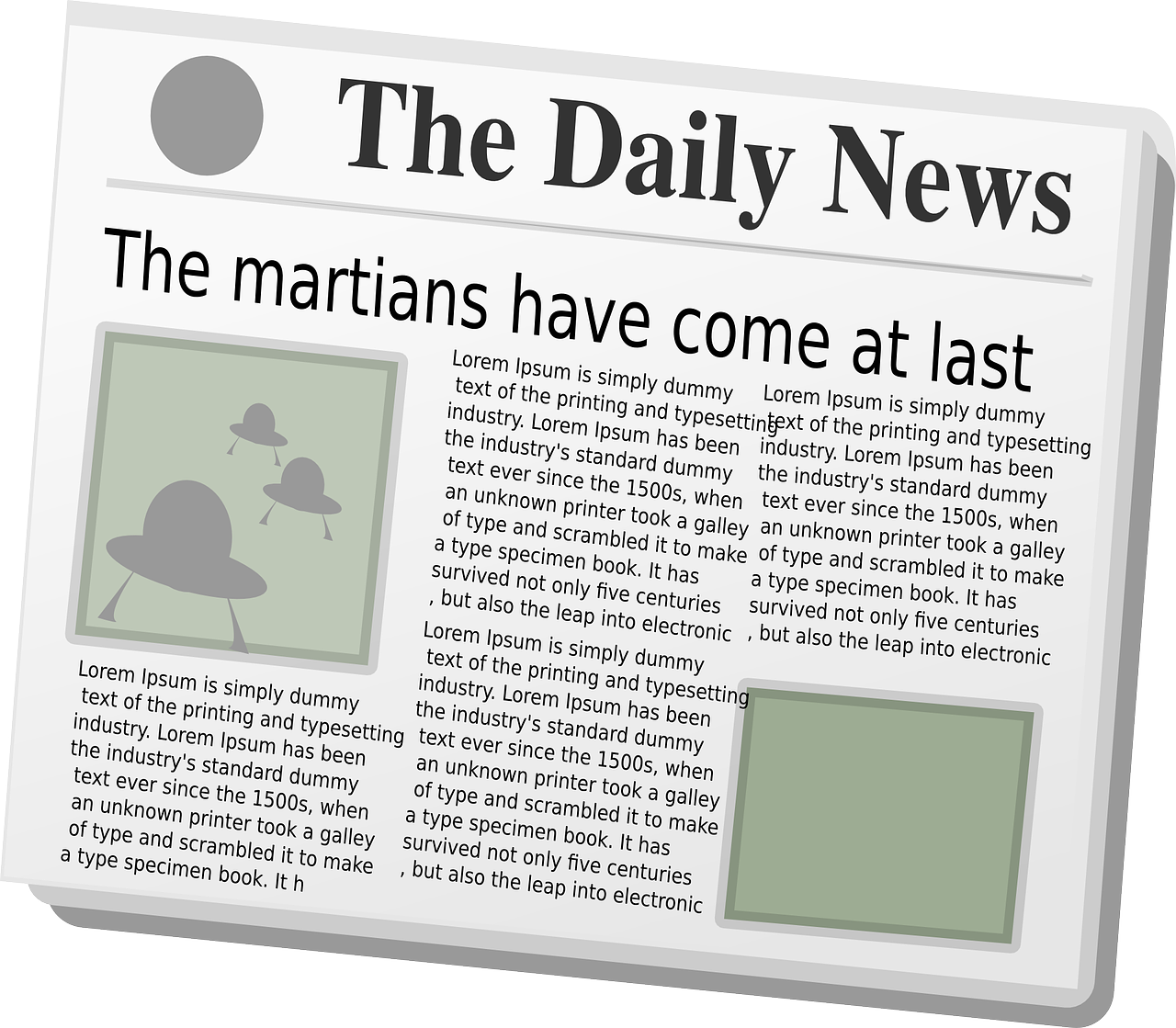
By Vinay Kolhatkar
October 30, 2014
SUBSCRIBE TO SAVVY STREET (It's Free)
Call it narrative, story, or rhetoric, political spin is now standard fare in all major democracies of the world. If we examine the relevant research from psychology, neuroscience, philosophy, and the media sciences, we can account for the why—why are we stuck with a political world that deals incessantly in rhetoric, spin, and story, and only fleetingly with facts, analysis, and evidence? Can a truth-telling fourth estate get high ratings? What’s so special about “spin” that it beats truth every time?
In The Storytelling Animal: How Stories Make Us Human, Jonathan Gottschall derives this inference from the work of split-brain neuroscience researcher Michael Gazzaninga—
Gottschall goes on to postulate how these findings explain the preponderance of conspiracy theories. He cites a Scripps Howard poll in which 36% of Americans believed that the U.S. Government was complicit in the 9/11 attacks, and 24% of Republicans believed that President Obama might be the Antichrist. Gottschall also cites evidence of how honest memories are unreliable, something law enforcement officials have long since discovered.
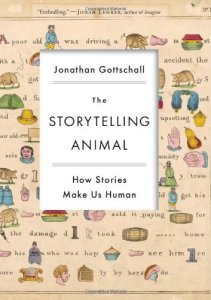 We read less than we used to, says Gottschall, not because we no longer like stories, but because we watch fiction on screen—hours a day on television, and then some more in theatres plus watch-at-home DVDs, and then we dream. The television viewing includes soft news, and a hybrid called reality TV. Gottschall further cites musicologist and neuroscientist Daniel Levitin’s astounding estimate of five hours per day as the average time spent listening to music—including elevator music, tunes humming in the background at home, work, and play, plus commercial jingles, most of which have lyrics that revolve around a “story”.
We read less than we used to, says Gottschall, not because we no longer like stories, but because we watch fiction on screen—hours a day on television, and then some more in theatres plus watch-at-home DVDs, and then we dream. The television viewing includes soft news, and a hybrid called reality TV. Gottschall further cites musicologist and neuroscientist Daniel Levitin’s astounding estimate of five hours per day as the average time spent listening to music—including elevator music, tunes humming in the background at home, work, and play, plus commercial jingles, most of which have lyrics that revolve around a “story”.
Gottschall calls this human obsession with the story form “the riddle of fiction,” but posits no answer to the riddle. However, in his epic, Story: Substance, Structure, Style, and the Principles of Screenwriting, famed Hollywood screenwriting guru Robert McKee does forward an answer. To quote McKee, “Our appetite for story is a reflection of the profound human need to grasp the patterns of living, not merely as an intellectual exercise, but within a very personal, emotional experience.” According to McKee, the view of art as merely entertainment is flawed, otherwise we would not love films or songs that make us cry. In every known civilization, there has been art, and it has often served no obvious practical purpose. Yet it existed, and still does, because there is the potential for an exhilarating pleasure to be derived from it. McKee traces this potential to learning about life itself.
In every known civilization, there has been art, and it has often served no obvious practical purpose.
Philosopher-novelist Ayn Rand went much further, developing both a formal definition of art and an entire theory of aesthetics:
“Art,” she said, “is a selective re-creation of reality according to an artist’s metaphysical value judgments. Man’s profound need of art lies in the fact that his cognitive faculty is conceptual, i.e., that he acquires knowledge by means of abstractions into his immediate, perceptual awareness. Art fulfills this need [for illustrative reality] by means of a selective re-creation, it concretizes man’s fundamental views of himself and his existence. It tells man, in effect, which aspects of his experience are to be regarded as essential, significant, important.”
It is no surprise that McKee is (as was Rand) a consummate fan of the polymath Aristotle, whom Rand quoted as having said that “Fiction is of greater philosophical importance than history, because history represents things as they are, while fiction represents them as they might be.”
With such weakness for narrative inherent in human DNA, is critical thinking lowered when human fancy is grabbed by an interesting yarn?
Is critical thinking lowered when human fancy is grabbed by an interesting yarn?
Michael Dahlstrom, a media psychology researcher at Iowa State University, inferred that “engagement with the narrative, as well as identification with characters, serves to increase persuasive impact through reducing the formation of counterarguments, lessening message scrutiny, and inhibiting psychological resistance.” So strong is the power of narratives in fact, says Dahlstrom, that “the Centers for Disease Control and Prevention have begun working with Hollywood to monitor the truthfulness of medical information in television dramas.”
Does our critical faculty, sedated by the emotional high of fiction, clean up (i.e. reorganize the accepted knowledge framework inside the mind) when the emotional roller-coaster ride is over? Dahlstrom answers the question in the negative—“Results from belief-based studies, which examine the acceptance of specific, factual assertions made within narratives and their incorporation into mental belief structures about the world, generally find that individuals do tend to accept narrative assertions and utilize them to answer questions about the world.”
In 2007, writing in the journal Media Psychology, researchers Markus Appel (Kepler University) and Tobias Richter (University of Kassel) had an even stronger inference—“persuasive effects of fictional narratives are persistent and even increase over time (the absolute sleeper effect),” and that “beliefs acquired by reading fictional narratives are integrated into real-world knowledge.”
In 2008, cognitive science researcher Dr Melanie Green (State University of New York) asserted that individuals tend to generalize from stories, even if the story is atypical. This may explain why archetype stories, even those later proved false, stick in one’s mind; why they survive the truth being outed—the mind does not like to let go, it does not want to believe the truth.
And now we are partway there, to understanding why the politically savvy tell us stories. But why doesn’t the fourth estate lift the curtain?
ALL THE PRESIDENT’S SPIN, AND THE COMPLICITY OF THE MEDIA
Skillful media narrators have made the sports field a battlefield of egos, personalities, cheating, deception, underdogs, redemption, and the against-the-odds victory. Often we hear about a sportsman’s/reality contestant’s past, his/her human story—the effect is to render the encounter presented as the grand, allegorical climax of their ‘story’. The so-called ‘reality’ shows on TV are preordained to create a compelling, extravagant narrative, and the clips edited to conform to the script. The World Wide Wrestling Federation and its successors have even been promoting a form of “professional” wrestling in the U.S. that is entirely scripted. Despite its apparent brutality, this theatrical ‘sport’ draws a large audience, in pay TV and as well as in the flesh.
Notwithstanding the increased form of drama everywhere, humans have not recently become more obsessed with story. They were always instinctively drawn to it, but as media platforms have become privatized, ratings are driving content more than ever. Ratings, at the end of the day, must yield to human instinct.
Small wonder then, that political campaigns fit the mold. John Heilemann, national political correspondent for New York magazine, and Mark Halperin, editor-at-large and senior political analyst for Time magazine, conducted more than three hundred interviews with over two hundred insiders on a ‘deep background’ (sources not revealed) basis to give us Game Change: Obama and the Clintons, McCain and Palin, and the Race of a Lifetime. This was an extensively researched, and meticulously laid out, insiders’ account of the 2008 U. S. presidential campaign. Despite their center-left credentials, Heilemann and Halperin imply that Obama’s campaign focused primarily on marketing and message, and not on substance.
This is hardly new. In 2004, Ben Fritz, Bryan Keefer, and Brendan Nyhan —all former journalists—published All the President’s Spin: George W Bush, the Media, and the Truth. In the preface to their scrupulous account of how spin is overtaking the political world, they wrote:
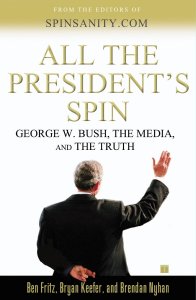 In other words, the media dumbed it down, or at the very least, was complicit in the dumbing-down process. Writing in Esquire, author and journalist Randall Rothenberg had also reached a similar conclusion, i.e. that the media caved in. He had titled his piece—The age of spin: perception has at last won its war over reality.
In other words, the media dumbed it down, or at the very least, was complicit in the dumbing-down process. Writing in Esquire, author and journalist Randall Rothenberg had also reached a similar conclusion, i.e. that the media caved in. He had titled his piece—The age of spin: perception has at last won its war over reality.
In their book, Fritz, Keefer, and Nyhan quote an example of an Associated Press reporter (Alan Fram) and a CNN reporter (Kelly Wallace) practically transcribing George W. Bush’s radio address; Fram reportedly wrote “the president said on the radio that his plan was fair and would help all taxpayers.” GW Bush repeatedly said that his plan was to help all taxpayers; those at the lowest end were to receive the largest benefit. In fact, his plan assisted only those who paid federal income taxes, and obviously, those who paid the least received the highest percentage effect, whilst those on the highest tax bracket received the largest dollar benefit—a fact consistently overlooked by the Bush PR machine.
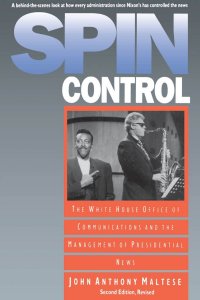 In Spin Control: The White House Office of Communications and the Management of Presidential News, John Maltese, department head of political science at the University of Georgia, chronicles how and why Richard Nixon created the White House Office of Communications (“WHOC”)—to influence what news will appear in the media, and how it is to be portrayed, using PR techniques. Maltese’s bipartisan conclusion was that the WHOC was not only retained, but also used in this manner by presidents Nixon, Ford, Carter, Reagan, GHW Bush, and Clinton—and disturbingly, in each case, more aggressively than by their predecessor in office.
In Spin Control: The White House Office of Communications and the Management of Presidential News, John Maltese, department head of political science at the University of Georgia, chronicles how and why Richard Nixon created the White House Office of Communications (“WHOC”)—to influence what news will appear in the media, and how it is to be portrayed, using PR techniques. Maltese’s bipartisan conclusion was that the WHOC was not only retained, but also used in this manner by presidents Nixon, Ford, Carter, Reagan, GHW Bush, and Clinton—and disturbingly, in each case, more aggressively than by their predecessor in office.
FIGHTING DECEPTIVE NARRATIVE CAN ONLY BE DONE WITH A TRUTHFUL COUNTER-NARRATIVE, NOT FACTS
It is of little consequence to the media’s watchdog responsibility that reality shows are unreal, and sporting events unfold as operatic finales. When the business of government resorts to trickery, however, the watchdog must bark.
The question is, what shape must the bark take? A song? A story?
Successful politicians have always been marketers of a heart-warming tale about their candidacy. Behind the scenes, their PR agents deliver a well-spun story attacking their rivals as elite, misguided, and uncaring. The 1993 federal election in Australia was seen as an ‘unlosable’ election for opposition leader John Hewson. Hewson conscientiously spelt out all his policies in a 650-page volume called Fightback. The underdog, Paul Keating, fought back with just rhetoric, and won. Whether you were pro-Labor, pro-Liberal, or a swing voter, the lesson was learnt, and has never been forgotten—the better marketers win, the fact-tellers lose.
As market research repeatedly verifies this inference—the wrapping of narrative, the staying-on-message, the “this is how we wish to convey the truth” modus operandi increasingly confronts fourth-estate journalists. Meanwhile, governments are holding their employers hostage to the carrot of privy, news-breaking deals.
One solution was suggested by Canadian political columnist Andrew Coyne. Writing in Maclean’s, Coyne asked for a provision in the Elections Act of Canada (implicitly as a beacon for the world), which would impose sanctions and/or penalties on politicians found to be making materially misleading statements. Coyne clarifies that such new legislation should only bind statements provided voluntarily to the grip of such a provision—in the sense that one can be let off for off-the-cuff statements in the street, but what you say in a sworn affidavit needs to be true. Coyne opined that the climate in Canadian politics was so infested with deceit that no one was believed, and thus honest politicians suffered. Still, the question remains—if honest politicians are in a small minority at best, what chance is there of such a provision becoming law?
In our search for a viable fourth estate strategy, we get a new lead via Markus Appel, a psychology and cultural studies researcher from Johannes Kepler University of Linz, Austria. Appel gives us this insight—“the more people watch television, the more their beliefs correspond to the television world.” I do not believe that the ‘TV as gospel’ issue is an intractable problem; in fact, it has the seeds of a solution. The truth can also be wrapped in an entertaining narrative.
The truth can also be wrapped in an entertaining narrative.
The greatest triumph of fiction over fact, as Aristotle implied, is that it can show the world as it can be and should be. In fiction, for a vast majority of cases, good triumphs over evil, unlike in the reality of the Al Jazeera global news bulletins. For good to triumph over evil in the real, non-fiction world, for truth to get through—it must be marketed; it must be encased in an appealing narrative. “Telling the truth” does not work.
Story is part of human DNA. Logic cannot beat story—not for persuasion anyway. Nevertheless, journalists can sparkle with a counter-narrative about why they think that a story, particularly during campaign times, is being spun a certain way. They can conjecture, with panache, trying to be a fly on the wall in the strategy room by deduction, and present their conjecture honestly as a hypothesis. The fourth estate could have colorfully covered the story about how John Howard bastardized the republic referendum in Australia by asking a loaded question: polls had suggested two-thirds of Australians did not favor a foreign national as the head of state. Fourth estate journalists could have, Jon Stewart-style, satirized G W Bush’s Claytons funding of stem cell research, whereby funding was provided only for a limited number of contaminated lines. Federal Treasurer Wayne Swan’s tall claim that the Labor Government prevented Australia from the GFC-led worldwide recession has not been, but could have been, countered with the élan of insightful satire.
Such a breakaway group, intent on spilling the beans, would inevitably have an adversarial relationship with the government in power. The rebel group could be denied, for its entire masthead, access to government-sponsored breaking news and press conferences. It is not something an entire brand can bear easily. Perhaps the fourth estate cannot be part of a media empire. Even a private media platform cannot freely examine the hand that feeds it.
Notwithstanding the issue of being necessarily late on government-led news, a story, about how The Story was manufactured, could be just as entertaining as The Story. The brand that tears rhetoric apart, may need to, for commercial reasons, be legally excised from the rest of the masthead, which can then continue to follow the herd. This is why bloggers, free of news-exclusives, are better at the fourth estate function than mainstream media.
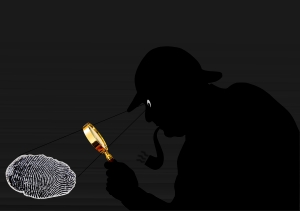 Nonetheless, a brand focused exclusively on the watchdog function can entertain as well, by making us ‘almost’ privy to the backroom strategy with reverse engineering. Entertainment pulls people in. Advertising revenue may be secured by audiences in numbers that matter. That is the prototype I am suggesting—engaging, deductive Watergaters, sworn to objectivity, as the new fourth estate. They could become the exemplars that survive the internet media revolution.
Nonetheless, a brand focused exclusively on the watchdog function can entertain as well, by making us ‘almost’ privy to the backroom strategy with reverse engineering. Entertainment pulls people in. Advertising revenue may be secured by audiences in numbers that matter. That is the prototype I am suggesting—engaging, deductive Watergaters, sworn to objectivity, as the new fourth estate. They could become the exemplars that survive the internet media revolution.








